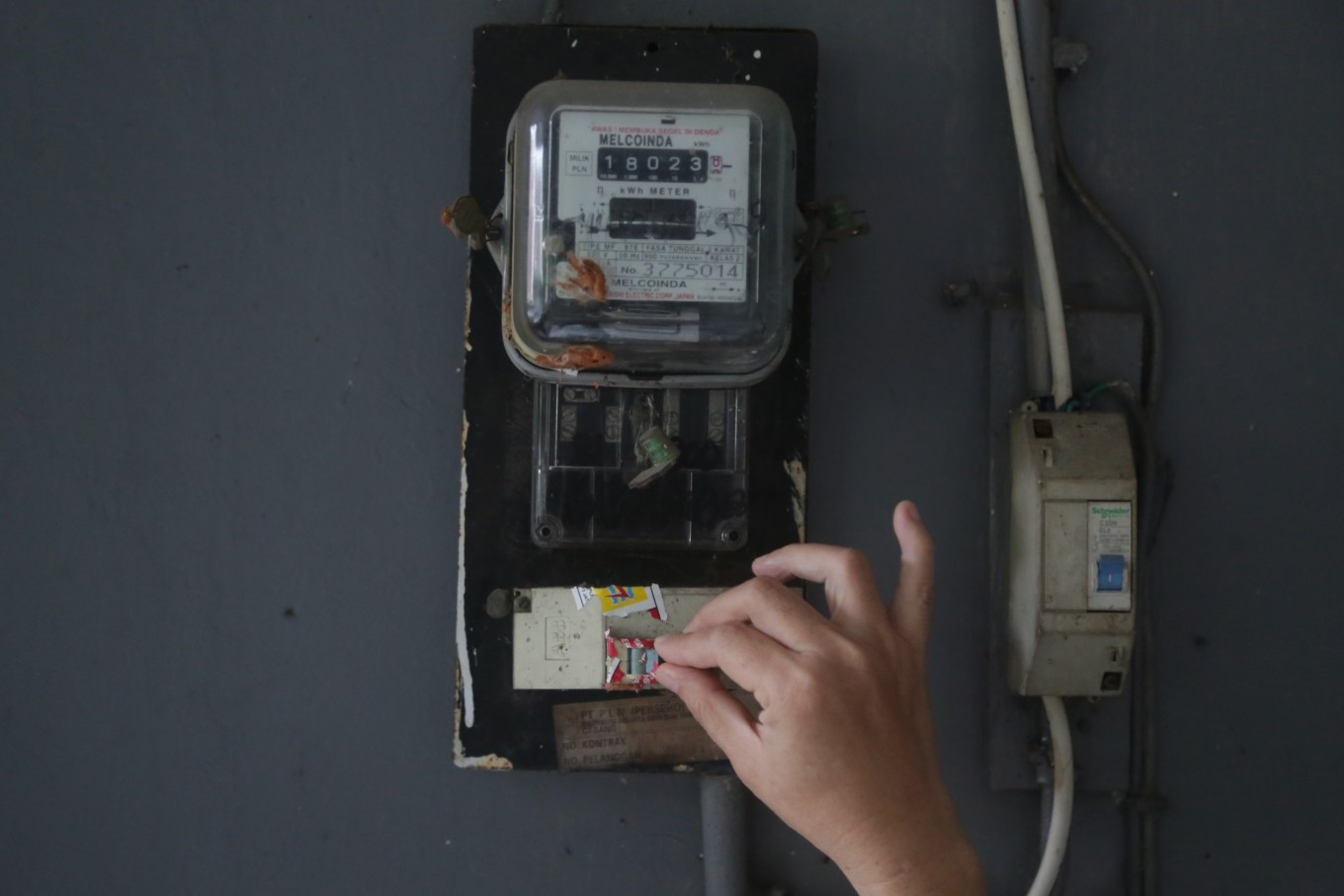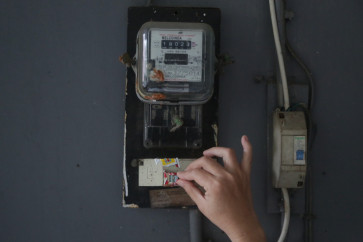Popular Reads
Top Results
Can't find what you're looking for?
View all search resultsPopular Reads
Top Results
Can't find what you're looking for?
View all search resultsAnalysis: New RUPTL signals energy security prioritized over green transition
Change text size
Gift Premium Articles
to Anyone
 A resident checks an electricity meter in Matraman, Jakarta, on Thursday. Electricity customers in the 450 volt-ampere (VA) category will not be charged for electricity for April, May or June, in an effort to alleviate the economic hardship brought about by the COVID-19 pandemic. (JP/Wendra Ajistyatama)
A resident checks an electricity meter in Matraman, Jakarta, on Thursday. Electricity customers in the 450 volt-ampere (VA) category will not be charged for electricity for April, May or June, in an effort to alleviate the economic hardship brought about by the COVID-19 pandemic. (JP/Wendra Ajistyatama)
T
he long-awaited 2025-2034 Electricity Procurement Business Plan (RUPTL), launched by the Energy and Mineral Resources (ESDM) Ministry on May 26, 2025, signals a shift in the government’s energy priorities—placing greater emphasis on energy security over the green transition. The new RUPTL marks a departure from the previous 2021-2030 RUPTL, which aimed for no new fossil-based capacity additions by 2030. In contrast, the 2025-2034 plan delays the significant ramp-up of renewable energy capacity to the second half of the decade, indicating a slower pace for Indonesia’s energy transition ambitions.
The 2025-2034 RUPTL is derived from the 2025-2060 National Electricity Master Plan (RUKN), which was released in March 2025. It outlines the state electricity company PLN’s target to add 69.5 gigawatts (GW) of new power generation capacity over the next decade. Of this, 16.6 GW or 24 percent will come from non-renewable sources, 10.3 GW or 15 percent from energy storage, and 42.5 GW or 61 percent from renewables, including 500 megawatts (MW) of nuclear power.
In the 2025-2029 period, the plan allocates 27.9 GW of new capacity, with non-renewables accounting for 12.7 GW or 45 percent and renewables 12.2 GW or 44 percent. In the 2030–2034 period, the share of non-renewables is projected to drop to 3.9 GW or 10 percent, while renewables are expected to surge to 30.4 GW or 73 percent.
This shift is a notable departure from the 2021-2030 RUPTL, which was designed to align with Indonesia’s emissions reduction commitments, including the net-zero target by 2060. The previous plan aimed to add 40.6 GW of new capacity, with 51.6 percent or around 20.92 GW coming from renewable sources. It also targeted a halt to the construction of new coal-fired power plants (CFPPs) by 2027 and projected a lower addition of gas-fired power plants (GFPPs) compared to the 2025–2034 plan.
Minister Bahlil Lahadalia stated that realizing the RUPTL’s targets could attract nearly Rp2.97 quadrillion in investment, with Rp2.13 quadrillion allocated for power plants, Rp565.3 trillion for transmission infrastructure, and Rp268.4 trillion for supporting sectors. He also expects independent power producers (IPPs) to contribute approximately 73 percent or Rp1.6 quadrillion of total power plant investments. The RUPTL is projected to create around 836,000 jobs, of which 91 percent or 791,000 are classified as green jobs. Bahlil also emphasized that the plan is intended to accommodate growing electricity demand, which the government forecasts will reach 205 terawatt-hours (TWh) in the 2025-2034 period, in support of the national target for 8 percent annual economic growth.
Despite the government’s optimism, experts have raised concerns that the new RUPTL contradicts existing policy frameworks and undermines Indonesia’s international commitments. The inclusion of new fossil fuel power plants throughout the 2025-2034 period appears to violate Presidential Regulation No. 112/2022, which prohibits the construction of new coal-fired power plants after 2030. Furthermore, the continued reliance on non-renewable capacity makes it more challenging for Indonesia to meet President Prabowo Subianto’s pledge at the 2024 G20 Rio de Janeiro Summit to phase out fossil fuel power plants by 2040.
Experts also warn that the RUPTL’s ambitious target for renewables development in the 2030-2034 period is costly and places the burden of implementation on the next administration. This approach raises doubts about the feasibility of Indonesia’s energy transition goals and the country’s ability to reduce emissions and limit power production from non-renewable sources. Moreover, if the RUPTL’s power generation targets are achieved but the 8 percent economic growth target fails to materialize, Indonesia risks once again facing an electricity surplus, which could strain the power sector and create inefficiencies.


















